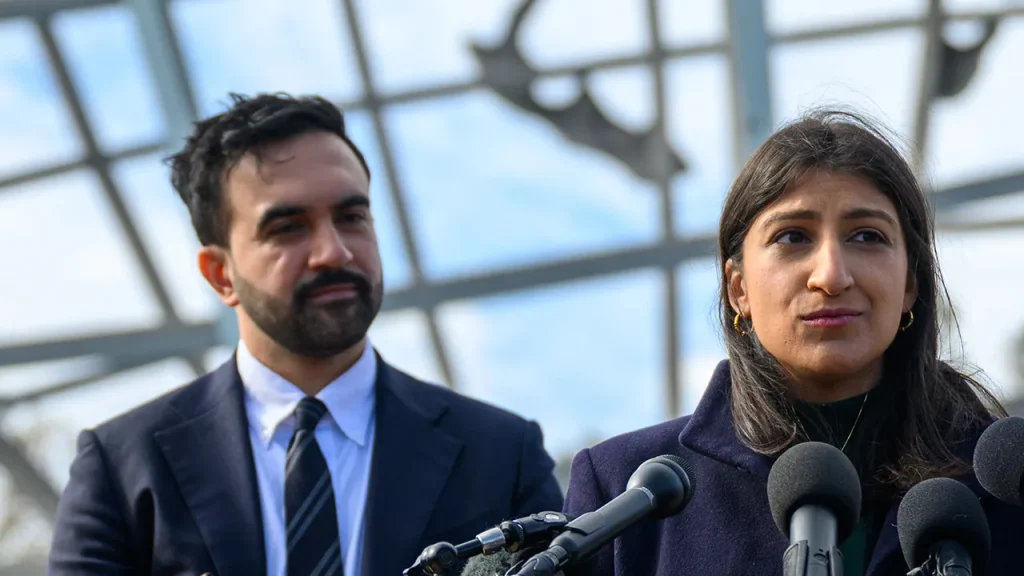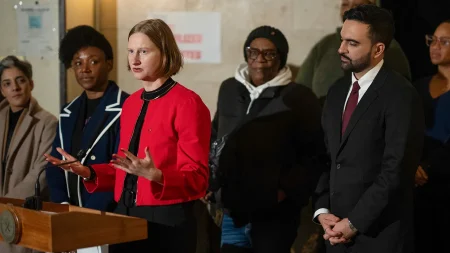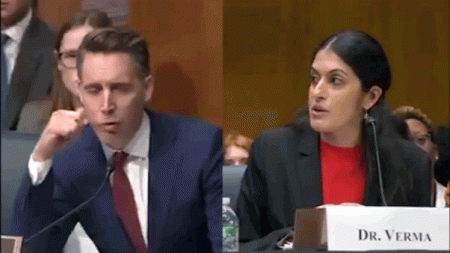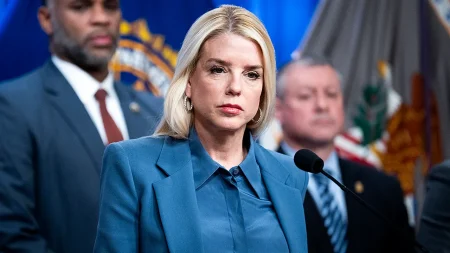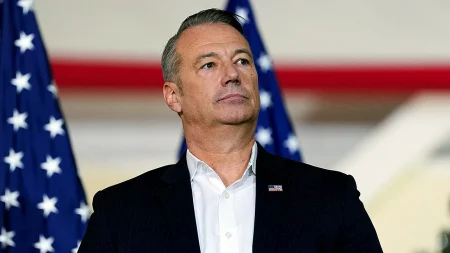Zohran Mamdani’s Political Contradiction: Progressive Rhetoric Meets Establishment Transition Team
In a move that has raised eyebrows across the political spectrum, New York City mayor-elect Zohran Mamdani has appointed an all-female transition team filled with Democratic Party establishment veterans—just hours after delivering a fiery victory speech denouncing that very establishment. This apparent contradiction has become the focal point of criticism, as Mamdani’s campaign rhetoric emphasized breaking with traditional power structures while promising a government that would “help everyone” rather than just the politically connected. His victory speech pointedly criticized unaccountable elected officials who prioritize self-enrichment over public trust, declaring, “For years, those in City Hall have only helped those who can help them. But on January 1st, we will usher in a city government that helps everyone.” Yet his transition team selections suggest continuity with previous administrations rather than the radical break he promised supporters.
Most notable among Mamdani’s transition team appointments is Lina Khan, former Federal Trade Commission chairperson under President Biden, who will serve as one of four co-chairs. Khan’s tenure at the FTC was marked by controversy, with Republican critics accusing her of undermining agency independence, collaborating with foreign regulators at the expense of U.S. companies, politicizing antitrust enforcement, and engaging in potentially unlawful rulemaking. The lone Republican commissioner during Khan’s chairmanship, Christie Wilson, eventually resigned, citing Khan’s leadership style and accusing her of sidelining career professionals while flouting due process and the rule of law. GOP strategist Colin Reed characterized Khan as becoming “synonymous with hostility toward businesses large and small during the Biden Administration and one of the ringleaders of Bidenomics,” suggesting that Mamdani is already breaking his core promises by embracing establishment figures.
Critics have particularly focused on Khan’s staffing decisions at the FTC, where she allegedly favored individuals from a network of progressive nonprofits funded by liberal billionaires like George Soros and Pierre Omidyar over career staff. Shortly after becoming chair, Khan appointed Sarah Miller as a special adviser before promoting her to chief of staff. Miller previously led the American Economic Liberties Project (AELP), which has received substantial funding from Soros’ Open Society Foundations, the Omidyar Network, and the Ford Foundation. The interconnections run deeper: Miller is married to Faiz Shakir, a former Bernie Sanders aide who founded More Perfect Union, another antitrust advocacy organization that has received similar funding. When Miller joined the FTC, AELP made her husband its interim leader while elevating former Omidyar Network consultant Nidhi Hedge to managing director, creating what critics view as a closed network of influence.
Khan’s FTC also brought in multiple employees from the AI Now Institute, another nonprofit supported by Soros, Omidyar, and Ford Foundation funding. The commission appointed AI Now founder Meredith Whittaker as a senior adviser on artificial intelligence in 2021, along with at least four other staffers from the organization. At one point, essentially the entire AI Now team had been called upon to advise the commission, with these advisers credited with helping to craft policy and messaging according to the FTC’s website. Similarly, Khan brought in an adviser who had previously worked at the Omidyar-backed Democracy Fund, later amending his job description to include “enforcement efforts.” Law professor John Kwoka, also tapped as an FTC adviser under Khan, had previously advised the Open Markets Institute, where Khan herself had served as the director of legal policy—an organization that has likewise received grants from the Soros, Omidyar, and Ford networks.
Beyond Khan, Mamdani’s transition team reflects deep ties to previous Democratic administrations in New York City. The other co-chairs include Maria Torres-Springer, who served under former mayors Michael Bloomberg, Bill de Blasio, and the outgoing Eric Adams; Melanie Hartzog, a former New York City budget director who was Deputy Mayor for Health and Human Services under de Blasio; and Grace Bonilla, who worked for both Bloomberg and de Blasio, including leading Bloomberg’s Task Force on Racial Equity and Inclusion. Additionally, Elana Leopold, a former senior aide to de Blasio, will serve as the transition team’s executive director. This roster of establishment figures has prompted conservative political strategist Matt Gorman to criticize Mamdani for claiming to usher in a new era while “picking from the same old political class of a failed Democratic administration.”
The stark contrast between Mamdani’s revolutionary rhetoric and his conventional appointments highlights a common tension in progressive politics: the challenge of balancing idealistic promises with practical governance. His victory speech struck a confrontational tone that CNN commentator Van Jones characterized as a “character switch,” expressing concern about the intensity of Mamdani’s delivery. The mayor-elect’s assertion that “there is no problem too large for government to solve” signals an ambitious progressive agenda, yet his reliance on experienced Democratic operatives suggests he recognizes the need for administrative expertise. As Mamdani prepares to take office on January 1, the question remains whether his administration will truly represent the break from establishment politics he promised or whether these appointments indicate a more pragmatic approach to governance that may disappoint his most ardent supporters.





